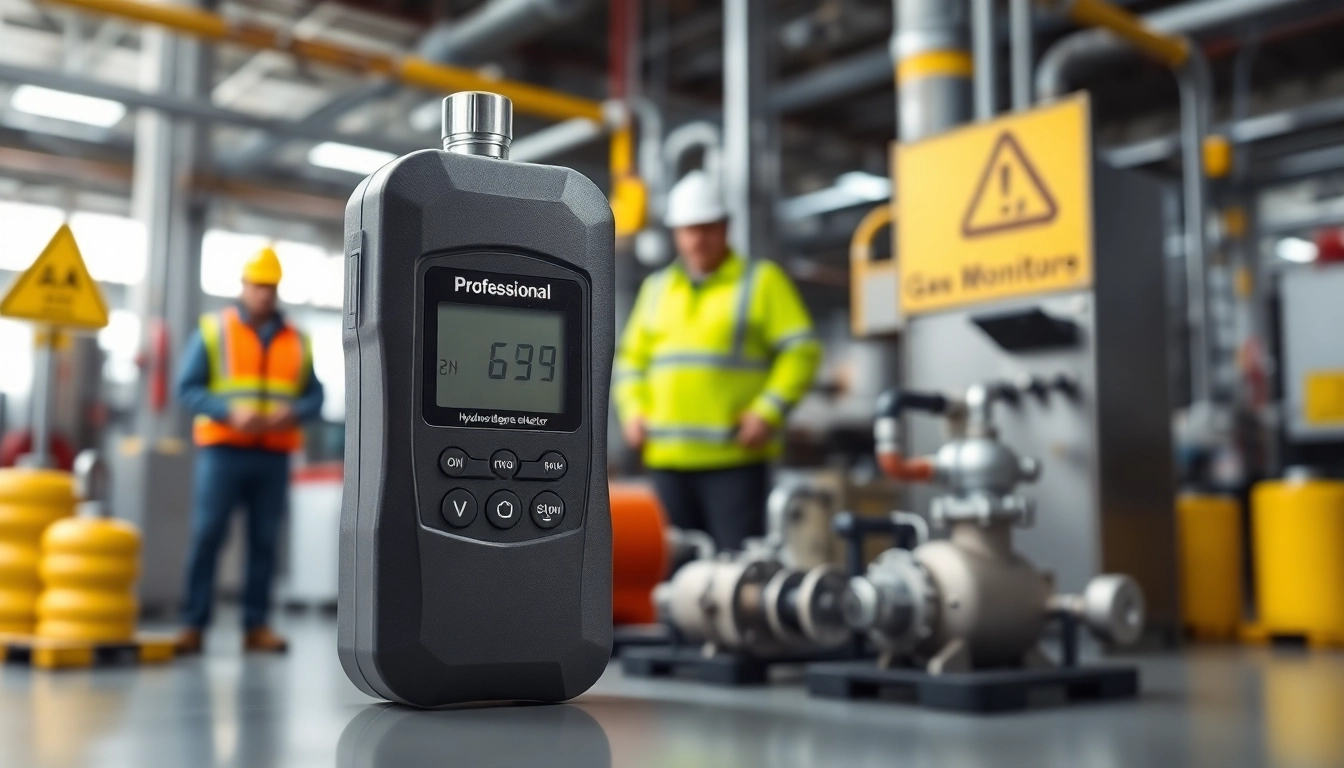Understanding the NVQ Level 4 Crane Supervisor Framework
What is the NVQ Level 4 in Crane Supervision?
The NVQ Level 4 in Crane Supervision is a vocational qualification designed to elevate the competence and capability of individuals overseeing lifting operations. This qualification is essential for those aspiring to achieve greater responsibilities within the construction and industrial sectors, particularly in roles involving the supervision of crane operations. By obtaining this certification, professionals not only demonstrate their understanding of legal obligations and safety protocols but also enhance their career prospects significantly.
The NVQ Level 4 encompasses various elements, including the assessment of supervising lifting operations, ensuring compliance with health and safety regulations, planning and leading operations, and managing on-site personnel. Given the complexities of crane operations, this qualification equips supervisors with the necessary skills and knowledge to oversee both safety measures and the logistical aspects of lifting operations efficiently.
Key Responsibilities of a Crane Supervisor
A crane supervisor plays a pivotal role in construction and industrial jobsites. Their primary responsibilities include:
- Planning Lifting Operations: Developing lift plans that consider load weights, crane specifications, site conditions, and lift techniques. This requires attention to detail and an understanding of engineering principles.
- Conducting Risk Assessments: Identifying potential hazards associated with lifting operations, assessing the risks involved, and implementing control measures to mitigate those risks.
- Ensuring Compliance: Adhering to industry regulations, health and safety standards, and company policies to ensure safe operations. This includes keeping updated on local laws and best practices in crane operations.
- Supervising Lifting Operations: Overseeing every aspect of the lifting process, which includes coordinating with crane operators, ground workers, and other staff to ensure a smooth and safe operation.
- Training and Mentoring: Offering guidance and support to junior staff and operators, promoting a culture of safety and competency in crane usage.
Overview of Assessment Criteria
The assessment for the NVQ Level 4 in Crane Supervision involves comprehensive evaluations across various criteria. Candidates are typically required to present evidence of their competencies and experiences related to:
- Supervising Lifting Operations: Evidence must be collected, demonstrating ability in planning, executing, and supervising lifting operations safely.
- Risk Management: Documenting incidents and how they were resolved, alongside detailed risk assessments illustrating the candidate’s decision-making process and adherence to safety standards.
- Technical Knowledge: Understanding crane operations, including types of cranes, lifting equipment, and load management, which will often be assessed through both practical and theoretical questions.
- Documentation: Completing necessary paperwork and documentation related to lifting plans, risk assessments, and incident reports is crucial for validation of competence.
Comprehensive NVQ Level 4 Crane Supervisor Answers
Common Questions and Effective Responses
Preparation for the NVQ Level 4 assessment requires familiarity with common questions that may be posed. Here are several topics and corresponding effective responses:
- Question: What procedures do you follow to ensure lifting operations comply with safety regulations?
Answer: I commence lifting operations by conducting a thorough risk assessment and ensuring that all personnel are briefed on the lift plan. Compliance checks with safety regulations are made through documentation and regular inspections of lifting equipment. - Question: Describe how you would manage a sudden change in weather conditions during a lift.
Answer: In adverse weather, I would immediately halt operations, consult weather forecasts, and assess the risks again. If conditions worsen, I would secure the load and ensure all personnel are safely evacuated from the site until it’s safe to resume operations. - Question: How do you train new team members in crane operation safety?
Answer: Training involves conducting workshops on safety standards, followed by on-site training with experienced operators. Continuous assessment and open-dialogue feedback are vital to ensure comprehension of safety measures.
Strategies for Preparing Your Answers
Successfully preparing answers for your NVQ Level 4 examination involves implementing strategic study techniques that ensure a depth of knowledge and readiness:
- Competitive Environment Analysis: Review the standards and expectations laid out by the awarding body. Understanding these can aid in focusing your study efforts on crucial areas of knowledge.
- Study Groups: Engage with peers at similar stages of their training to share insights, resources, and mock assessments; this will aid in clarifying difficult concepts and enhance collaborative learning.
- Practice Real-World Scenarios: Creating hypothetical scenarios or studying case studies relaying past incidents can help in applying knowledge correctly during assessments.
- Documentation Review: Familiarize yourself with industry standards and documents—such as Health and Safety guidelines, operating manuals—which are essential for practical demonstrations and written assessments.
Documentation and Evidence Requirements
Thorough documentation is critical in the NVQ assessment process. Collecting relevant evidence not only demonstrates competence but also ensures a pass in the assessment:
- Log Books: Maintaining detailed logs of daily operations, inspections, and meetings which showcase your hands-on experiences and decision-making in real scenarios.
- Completed Risk Assessments: Present documents of various risk assessments you’ve undertaken, illustrating how risks were identified, assessed, and mitigated.
- Witness Statements: Gathering statements from qualified colleagues that can testify to your operational capabilities and safety practices strengthens your submission.
- Reflective Statements: Write reflection statements on past experiences, which should detail what was learned and how that knowledge has improved your operational procedures.
Best Practices for Crane Operations
Safety Protocols in Lifting Operations
The safety of lifting operations is paramount. Best practices include:
- Pre-Lift Meetings: Conducting detailed discussions before any lift to go over every procedure and clarifying roles ensures that all team members understand their responsibilities.
- Use of Personal Protective Equipment (PPE): Enforcing strict adherence to PPE policies minimizes potential injuries during lifting operations.
- Regular Inspection of Equipment: Ensuring that cranes and lifting gear are regularly inspected and maintained according to manufacturer and industry standards promotes longevity and safety.
- Implementation of Standard Operating Procedures (SOP): Establishing clear SOPs for every aspect of crane operations will enable all team members to follow consistent procedures, reducing the chances of mishaps.
Managing On-Site Personnel Interactions
Effective management of on-site personnel can enhance operational efficiency and safety:
- Effective Communication: Maintain open channels of communication among team members, using radios or hand signals to relay information swiftly and accurately.
- Role Delegation: Assign clear roles within the team to avoid confusion during lifting procedures, ensuring that each member knows precisely their responsibilities.
- Supportive Leadership: Providing a supportive atmosphere encourages team members to express concerns or suggest alternatives, fostering problem-solving and proactive engagement.
Emergency Procedures and Protocols
Preparedness for emergencies is a cornerstone of crane operation safety. Effective protocols include:
- Emergency Action Plans (EAP): Establish and communicate a comprehensive EAP that outlines step-by-step procedures in case of an incident or accident. Regularly trained drills ensure everyone knows how to respond appropriately.
- Evacuation Plans: Clear evacuation routes should be charted and communicated to all team members, reducing confusion and potential risks in emergency cases.
- First Aid Training: Ensuring that designated team members are first aid trained can greatly improve responses to workplace injuries.
Resources for NVQ Level 4 Preparation
Study Materials and Guides
A plethora of study materials, including textbooks, PDF guides, and practical manuals, are available specifically for the NVQ Level 4 Crane Supervisor qualification. These materials provide comprehensive insights and examples that are directly applicable to the assessments. Industry bodies often publish recommended reading lists to help candidates focus their studies effectively.
Online Courses and Workshops
Joining online courses or workshops can enhance your understanding of core concepts through interactive learning. These resources typically provide:
- Expert Instruction: Courses led by industry veterans can provide insider knowledge and tips that are invaluable for your preparation.
- Flexibility: Online platforms allow learners to engage with materials at their convenience, fitting their studies around other commitments.
- Networking Opportunities: Workshops facilitate connections between peers and industry professionals, which could be beneficial for future career growth.
Connecting with Industry Experts
Engaging with industry professionals through networks, forums, or mentorships can provide invaluable insights and enhance knowledge. Platforms like LinkedIn can help establish connections with experienced Crane Supervisors and trainers, allowing for the sharing of experiences, advice, and best practices critical for navigating the NVQ Level 4 successfully.
Testimonies and Success Stories
Real Life Experiences from Qualified Supervisors
Hearing from individuals who have successfully completed the NVQ Level 4 can be motivating and instructive. Many report that the qualification not only provided them with essential technical skills but also improved their confidence in leading teams and handling complex operations. These testimonies highlight the transformative impact the NVQ Level 4 has on career paths.
Impact of NVQ Level 4 Certification on Careers
Obtaining the NVQ Level 4 Crane Supervisor qualification can result in various benefits, including:
- Career Advancement: A certification opens doors to higher-level positions within construction and industrial sectors, often leading to managerial roles.
- Higher Salary Potential: Qualified Crane Supervisors typically command higher salaries due to their expertise and the responsibilities held.
- Increased Job Security: With safety and operational efficiency becoming paramount in the industry, qualified supervisors are seen as invaluable assets.
Tips from Successful Candidates
Successful candidates often emphasize the importance of thorough preparation, ongoing education, and networking. Some key tips include:
- Start Early: Begin studying well in advance of the assessment dates to ensure you can cover all material thoroughly.
- Utilize All Available Resources: Make use of textbooks, online courses, and past examination papers to get a comprehensive picture of the exam structure.
- Seek Feedback: After practicing, seek feedback from peers or mentors to improve your answers and understanding of the material.
In conclusion, navigating the complexities of the NVQ Level 4 Crane Supervisor qualification requires diligence, planning, and effective use of resources. To enhance your chances of success, prepare thoroughly using a mix of practical experiences, theoretical knowledge, and available study materials. By doing so, you not only prepare for assessments but also lay down a solid foundation for a successful career in crane supervision.
For those looking for a clear set of answers to support their preparation, resources such as NVQ Level 4 Crane supervisor answers can provide valuable guidance and insights during the study process.















Leave a Reply